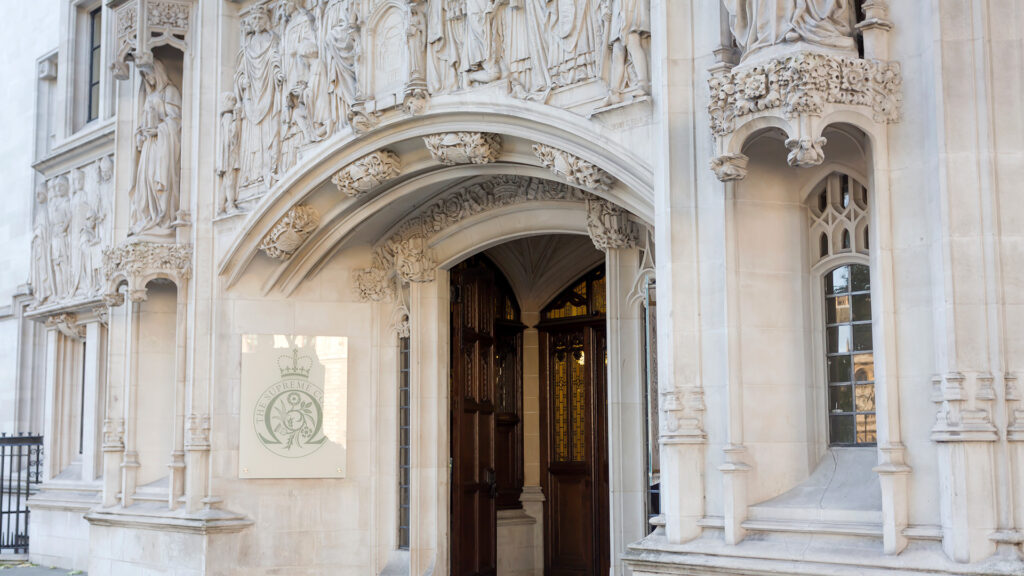
SFO Launches Refreshed Corporate Guidance on Self-Reporting and Co-Operation
On 24 April 2025, the SFO issued new guidance on corporate self-reporting and co-operation, fulfilling one of its aims set out in its 2025-26 Business Plan.
Hot on the heels of the announcement of the establishment of an International Anti-Corruption Prosecutorial Taskforce, with the French and Swiss anti-corruption agencies, its support of initiatives to incentivise whistleblowers and against the backdrop of the new Failure to Prevent Fraud offence (which comes into effect on 1 September 2025) the SFO issued new guidance on corporate self-reporting and co-operation on 24 April 2025, thus fulfilling one of the strategic aims set out in its 2025-26 Business Plan, published earlier that month.
The new guidance which aims to clarify the circumstances in which a corporate will be invited to enter into deferred prosecution agreement negotiations. To put this in context, the decision on whether to offer a DPA is currently governed by the Code for Crown Prosecutors, the joint SFO and CPS Corporate Prosecutions guidance and the Deferred Prosecution Agreements Code of Practice (the DPA Code). The new SFO guidance does not have the same statutory basis as this other guidance, rather it is an attempt by the SFO to clarify its position with regard to the exercise of its prosecutorial discretion on whether or not to invite a corporate to enter into DPA negotiations. The new guidance basically replaces “may” with “will” in relation the decision on whether to invite a corporate to enter into DPA negotiations where “a corporate self-reports promptly to the SFO and co-operates fully, unless exceptional circumstances apply”.
Prompt self-reporting
As set out in the DPA Code and repeated in the SFO’s new guidance, a self-report must be made within “reasonable time” of the offending coming to light. Both the DPA Code and the SFO’s guidance accept that a corporate may undertake an investigation before it self-reports, however, the new guidance makes it clear that where there is direct evidence of corporate offending, the SFO expects a corporate to self-report soon after learning of that evidence.
Full co-operation – above and beyond
Co-operation is important, not least because, as stated in the SFO’s new guidance, and as has already been demonstrated in previous DPA cases, it is still possible to be invited to DPA negotiations even if a self-report has not been made, provided there has been “exemplary co-operation”.
Co-operation is described in the new guidance as “going above and beyond what the law requires”. The DPA Code already includes some details of what was considered to amount to co-operation. The new SFO guidance builds and expands on that with a shopping list of what amounts to “co-operative conduct” setting out steps which “are likely to be assessed as providing exemplary co-operation”.
Legal professional privilege
One area which has been subject to much debate, and litigation, relates to claims of legal professional privilege over internal investigations. The DPA Code refers to privilege, stating that the “DPA Code cannot alter the law on legal professional privilege”. While acknowledging this, SFO representatives have previously indicated in public forums that a waiver of privilege over notes of witness interviews, for instance, would be considered a positive factor when weighing co-operation. The new SFO guidance confirms that while a corporate won’t be penalised for maintaining valid claims of privilege, waiving that privilege would be considered a “significant co-operative act” and waivers over interview notes would “weigh strongly in favour of co-operation”.
Exceptional circumstances
The caveat to the SFO’s position on offering DPAs is that they won’t where “exceptional circumstances” apply. The guidance makes it clear that the SFO considers “uncooperative conduct” to include attempts to “forum shop” by unreasonably reporting offending to another jurisdiction for strategic reasons and attempts to minimise or obfuscate the involvement of individuals or delaying providing information or material.
Other circumstances which are likely to be considered un-cooperative would be going ahead with internal investigation interviews where the SFO have requested that these be paused, or actions that may lead to the loss of evidence, potentially prejudicing a later investigation by the SFO. For example, this may occur where material may be outside the control of the corporate and the individuals who control that material are made aware of the investigation by virtue of being invited to an interview, without thought being given to the potential loss of evidence. In this regard, the SFO guidance states a preference for there to be early engagement on the parameters of internal investigations, and particularly, interviews.
Timetable
One of the issues with SFO investigations, whether they are a result of a self-report or not, is the time it takes to get a response from the SFO and/or see any action. The new guidance attempts to address this by setting out a time frame in which a corporate can expect certain actions to have been taken. This includes initial contact within 48 hours of a self-report, regular updates on progress and a decision on whether to open an investigation “ordinarily” made within six (6) months. Once opened the SFO will seek to conclude it within a “reasonably prompt time frame”. In terms of the DPA negotiations, the guidance states it will aim to conclude them within six (6) months of sending the invitation.
Observations
The new guidance is an attempt by the SFO to encourage self-reporting against a backdrop of no DPAs being announced since 2023 and a negligible number of self-reports. Unlike businesses in the regulated sector who are required to report suspicions of money laundering under the proceeds of crime regime, corporates outside of that sector are under no obligation to self-report and do not commit an offence by not doing so.
While clarity around time frame is welcome, in reality, as the guidance alludes to, this is often out of the SFO’s hands and depends on a number of external parties, particularly for cases involving wrongdoing and/or evidence in other jurisdictions. While the new prosecutorial taskforce may help with this, it currently only consists of two other countries so there is still a real risk of long delays.
Ultimately, nothing has really changed the incentives and risk calculus remain the same. To really encourage self-reporting, corporates need to be certain of a better deal. While the new guidance gives some clarity over the process what it cannot do is give certainty as to the ultimate outcome, i.e. the financial penalty. That is not in the gift of the SFO but rather is in the hand of the courts.











